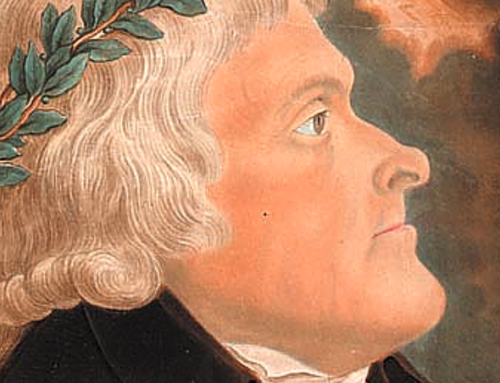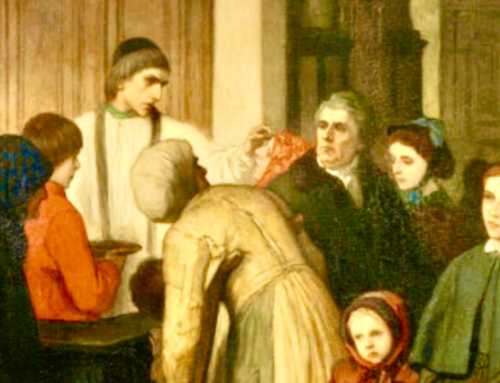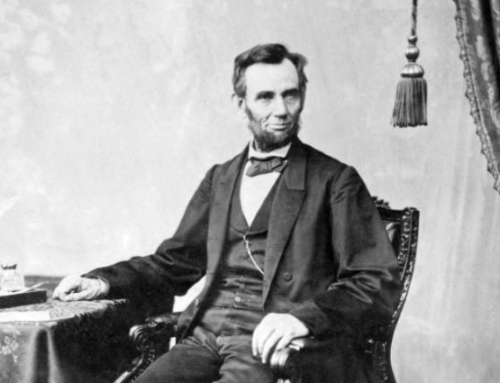The Unbought Grace of Life: Essays in Honor of Russell Kirk, edited by James E. Person Jr.
This Festschrift was in galleys when Russell Kirk‘s health began failing. On learning of Kirk‘s decline, Sherwood Sugden photocopied the galleys and mailed them to Mecosta. The editor, James Person, a close friend of the Kirks, made the long trek to Piety Hill hoping to present the finished book to Dr. Kirk before his death. Happily, Dr. Kirk was energetic enough to peruse it, and was pleased.[1] He had reason to be.
Assembling memoirs and evaluations by Henry Regnery, Peter Stanlis, Irving Louis Horowitz, Jeffrey Hart, M.E. Bradford, M.D. Aeschliman, and others, the Festschrift ably captures Kirk’s achievements and character. Aeschliman sums him up aptly:
He is at once a moralist, a historian, a social or “public” philosopher, and a man of letters, a confluence and conjunction of talents that reminds us of the high Victorians, especially of Arnold and Newman. As social philosopher, he follows in the line of Eliot … As a moralist, religious thinker, and writer he also reminds one of Eliot, Lewis, and Malcolm Muggeridge, with their profound but pugnacious orthodoxy and satire that aims to lash the vices and mitigate the follies of the age. But as a historian, religious thinker, and writer Kirk has something of the statesman in him too….Quite rightly did Forrest McDonald (quoting M.E. Bradford) call Kirk “the American Cicero,” as his interests are in the lasting rather than the ephemeral; the normative rather than the unique, idiosyncratic or exotic; the true rather than the new. [2]
Kirk’s achievement which receives greatest recognition, understandably, is his virtually single-handed rehabilitation of conservatism in the teeth of triumphalist liberalism, with the publication of The Conservative Mind in 1953. Three years earlier, Lionel Trilling had written, “In the United States at this time liberalism is not only the dominant but even the sole intellectual tradition. For it is the plain fact that nowadays there are no conservative or reactionary ideas in general circulation.[3] At one stroke Kirk exploded Trilling’s boast-not by creating conservatism, but by synthesizing and revealing a rich tradition already present. More important, as Stanlis points out, “By defining conservatism as a philosophy of life, with specific normative and political principles, Russell’s study destroyed the assumption of American liberals that conservatism was merely a defense of entrenched economic or corporate interests, or of every status quo regime, regardless of its theoretical basis or behavior.”[4] Less well-known is Kirk‘s willingness to quit the sanctum of his library for the tiltyard of politics. Stanlis furnishes a rare account of their joint resistance to attempts to degrade educational standards in Michigan and being “blacklisted by the educationists of Michigan for many year.” [5]
Indeed, Russell Kirk emerges in these pages as a quietly valorous soul. To protest academic decadence, he resigned his Michigan State College teaching post and turned to writing.[6] Henry Regnery remonstrated, “pointing out the advantages of the regular salary of a university teacher as opposed to the uncertainties of living as a writer.” Kirk replied in words of calm fortitude that merit repeating, standing as they do in contrast to modernity’s pandemic hunger for material security:
Poverty never bothered me; I can live on four hundred dollars cash per annum, if I must; time to think, and freedom of action, are much more important to me at present than any possible economic advantage. I have always had to make my own way, opposed rather than aided by the times and the men who run matters for us; and I don’t mind continuing to do so. [7]
Michigan State’s loss was our gain. Possessing an “enormous reservoir of psychic energy, to go with his literary talent,”[8] Kirk produced a huge output, which, as the reviews by Bradford, Aeschliman and others attest, was consistently excellent. Kirk demonstrated that American democracy and order were not brand-new confections but organic products of an evolution beginning in Hebrew, Greek and Roman antiquity and decisively formed by British character and culture. He revealed the decadence in higher education and suggested many remedies. And his essays anchored shrewd criticism of the issues of the day in an awareness of a transcendent order. Moreover, as McDonald notes, there was “a continuous evolution in his thinking.”[9] Kirk came to see Adam Smith as a “pillar of order,”[10] and Horowitz lauds his growing appreciation of social science honestly done. [11]
Above all, perhaps, Russell Kirk’s generosity shines forth. He gave friends and allies, in Stanlis’ words, “much more than he had any reason to believe he would ever receive in return”[12] indefatigable assistance in securing grants and publication; encouragement; illuminating advice and criticism; networking.[13] Piety Hill was sanctuary for scores of Eastern bloc refugees, Third World immigrants, and unwed mothers.[14] (This reviewer, too, knew Kirk’s warm friendliness, his kind praise that meant, and still means, much to a young writer, his invitation to review The Politics of Prudence, his counsel of cheerful stoicism.)
Cecilia Kirk reveals his thoughtful tending to the soulcraft of his daughters by reading them stories aloud and encouraging their own reading. In the process, “my father imparted a cultural legacy to me.”[15] And, as Andrew Lytle shows, his ghost stories made important moral points. [16]
There are rare criticisms, gently made. John Lukacs notes “Russell’s tendency to see his larger political and philosophical principles absorbed and incarnated by temporarily important but, in reality, ephemeral political figures.”[17] But this is unimportant, as Lukacs adds- and, in truth, is merely misplaced Kirkian generosity.
Kirk’s friends testify to his keen interest in “the rising generation,” on whom he lavished a mentorship that can only be called loving,[18] in the faith that they could “redeem the time.” The Politics of Prudence (1993) exhorts them to this urgent task, and offers shrewd advice for it. As its title implies, the Festschrift’s second part, “Redeeming the Time,” occupying two-thirds of the book, addresses Kirk’s concern.
Redemption entails, first, a clear awareness of the sins and perils to be redeemed from. One is a “conservative” Supreme Court which, as William Bentley Ball reveals, has been undermining religious liberties. Anthropologist Grace Goodell explores another: government paternalism that saps its recipients’ character.
One path of redemption, Kirk realized, lies in cultural works witnessing for the permanent things, and Cleanth Brooks demonstrates poetry’s affirmative power. Another is a clear and precise sense of the significations of concepts. Kirk knew it well; three of his books, Henry Regnery notes, are “essays in definition”: The Conservative Mind; Academic Freedom: An Essay in Definition; and The American Cause. In “Virtue: Real and Imagined,” an outstanding and important essay in its own right, Claes Ryn carries on Kirk‘s work, lucidly distinguishing the true virtue of love of neighbor from the spurious Rousseauean expansive compassion for all humanity, and showing how different institutional arrangements reflect these differing conceptions of virtue. Ryn ably depicts the complex interactions of small groups and individuals, and how each affects the character of the other.
Some non-Kirk essays, however, don’t hew to their section’s theme of “redeeming the time,” thus marring the book’s integration. These essays could have been omitted without loss, and the space gained used to yield a fuller portrait of Kirk. For example, explication and evaluation of his economic thought would have been enlightening. While he upheld private property and markets, his loyalty, like Roepke’s and Babbitt’s, flowed from spiritual and humanist concerns, not worship of efficiency.
But all in all, The Unbought Grace of Life is a worthy tribute to a great man. May it be the first of many.
Books on or by Dr. Kirk may be found in The Imaginative Conservative Bookstore. Reprinted with the gracious permission of Modern Age (Winter 1997).
Notes
1. Telephone conversation with this reviewer.
2. M. D. Aeschliman, “Natural Law or Nihilism?”, The Unbought Grace of Life, 83-84.
3. Jeffrey Hart, “The Importance of Russell Kirk,” The Unbought Grace of Life, 66.
4. Peter J. Stanlis, “Russell Kirk Memoir of a Friendship,” The Unbought Grace of Life, 38.
5. Stanlis, 47.
6. Ibid., 45.
7. Henry Regnery, “Russell Kirk: An Appraisal,“ The Unbought Grace of Life, 29.
8. Stanlis, 34.
9. Forrest McDonald, “Russell Kirk: The American Cicero,” The Unbought Grace of Life, 15.
10. Ibid., 16-17.
11. Irving Louis Horowitz, “Russell Kirk: Past as Prologue,” The Unbought Grace of life, 55-56.
12. Stanlis, 33.
13. Ibid., 33-34, 42-43.
14. Editor’s introduction, 3; Stanlis, 48-49.
15. Cecilia A. Kirk, “‘The Box of Delights’: A Literary Patrimony,” The Unbought Grace of Life, 64-65.
16. Andrew Lytle, “The Terrors of the Soul,” The Unbought Grace of Life, 87-90.
17. John Lukacs, “An Exceptional Mind, An Exceptional Friend,” The Unbought Grace of Life, 53.
18. See, e.g., Regnery, “Russell Kirk: An Appraisal,” 29.








Leave A Comment